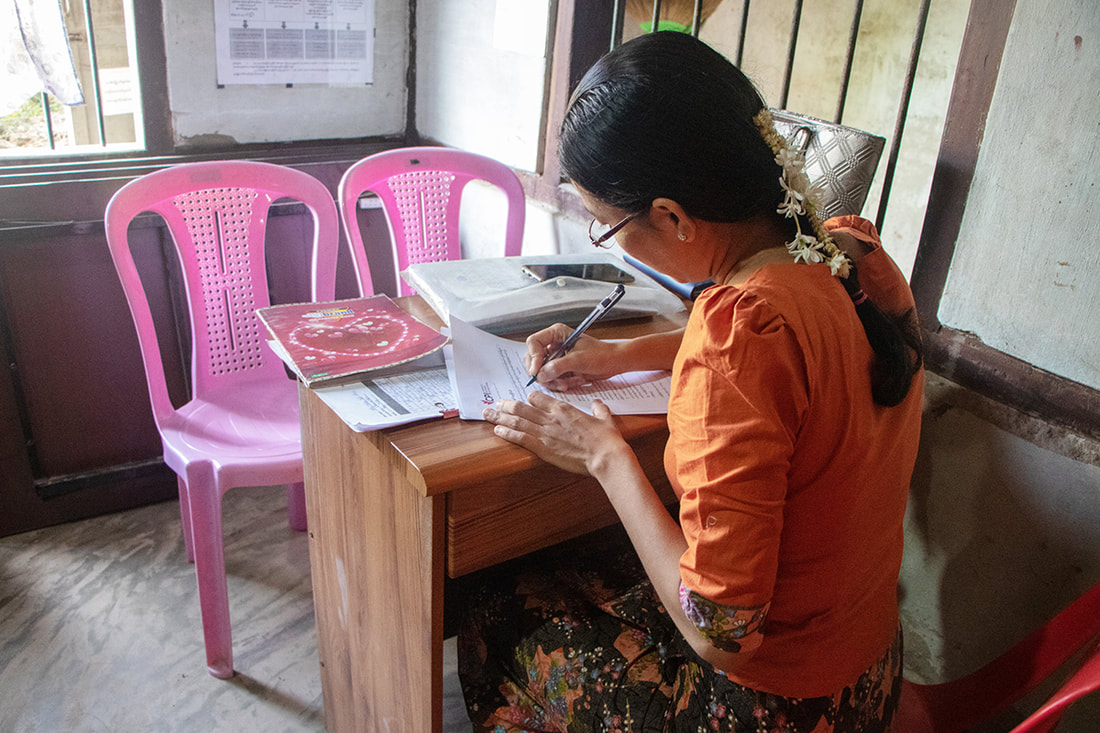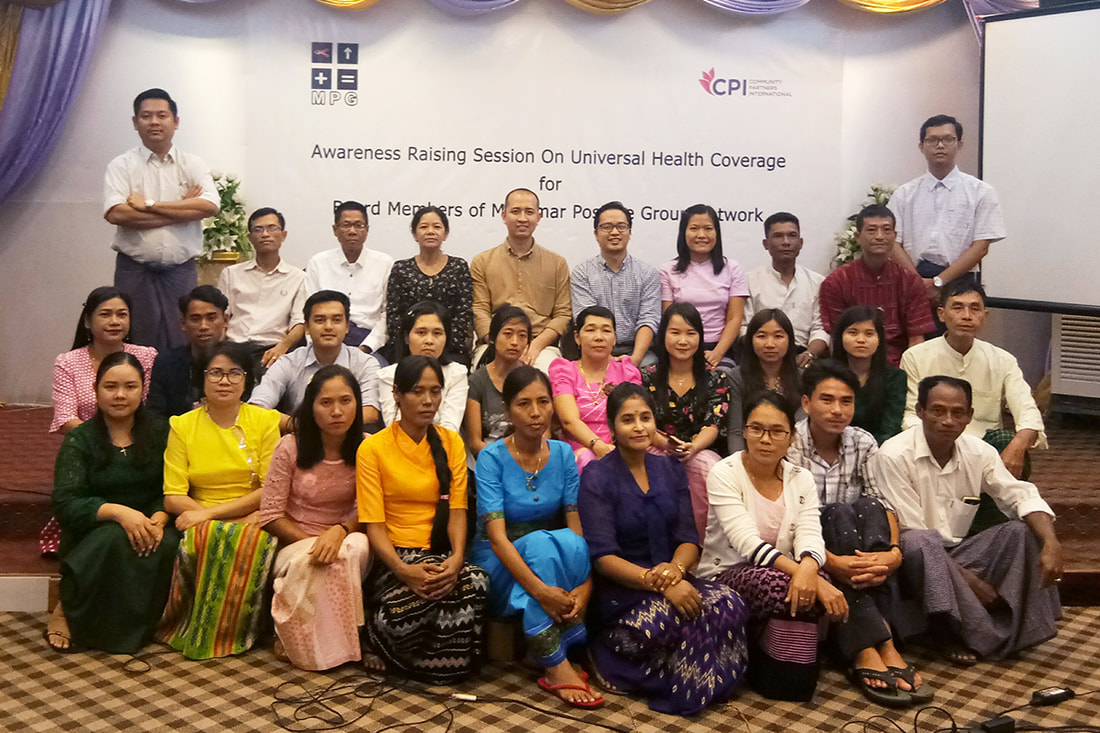|
Thiri, 37, found out that she was HIV positive during a routine checkup while pregnant in 2013. She was afraid and alone. “I was so scared that others would find out that I had HIV so I didn’t leave the house for a long time. I couldn’t tell my parents.” Thiri was living in Minbu, a rural township in Magway Region, central Myanmar. She worried about the health of her unborn daughter. When she was born, her daughter was tested and was HIV negative. Thiri was hugely relieved. However, soon afterwards, her husband died. Grieving, coming to terms with her HIV status, and needing to care for her young daughter, Thiri faced many hardships. During this period, she was visited by friends of her husband who were members of the Myanmar Positive Group, a national grassroots support network of people living with HIV (PLHIV). “They came to me, gave me information about HIV and encouraged me not to be sad.” In 2013, antiretroviral therapy (ART) medication was not available in Minbu. Thiri had to travel nearly four hours north to the town of Pakokku where she could receive treatment. She ran a small business, but struggled to afford the cost of traveling to Pakokku and living there during treatment. Today, PLHIV can access free treatment in Minbu through Myanmar’s National AIDS Program. In 2016, Thiri accepted a role as a care provider and counselor with the Myanmar Positive Group. “HIV is such a sensitive subject in Myanmar. When working with PLHIV, you need to have a strong bond of trust and honesty. As I am also living with HIV, they trust me and can feel that I understand their situation. I want to share my experience to help them overcome their difficulties and gain acceptance from their loved ones like I did.” With technical and financial assistance from Community Partners International (CPI), the Myanmar Positive Group supports PLHIV with the cost of transportation to and from hospital for treatment and to collect medication, and helps cover hospitalization expenses. The group also provides PLHIV with supplementary nutrition including beans, rice and cooking oil to help clients maintain their health. Thiri supports the Myanmar Positive Group in their outreach to more than 600 PLHIV in Magway and Minbu townships. Her main role is to provide counseling.
“I counsel clients before and after HIV testing to support them and help them come to terms with their diagnosis. As a care provider, I follow up regularly with my clients to check on their health. I have to make sure that they understand and follow the medical checkup and treatment schedule. I explain to them how to live safely with HIV and prevent transmission. I encourage them to persuade their family members to get tested. We make it easier for clients and their families when they are hospitalized by supporting some of the expenses.” She also helps her clients to get medication from the local hospital. “Some of my clients only know the Myanmar traditional calendar. So, I use both the regular and traditional calendar to tell them which day they have to come to collect medicine.” At times, her clients ask her to counsel their families to help them to understand and accept the diagnosis. “Some of my clients find it very difficult to tell their family that they have HIV. So, I ask them to bring the family members who they trust most to me, and I explain to them what HIV is, and that it is quite easy to prevent transmission. I emphasize that, as family members, their support to their loved one who has HIV is very important.” The stigma associated with HIV in Myanmar means that Thiri has to be very discreet when working with her clients. “Most people living in this town know that I work with the Myanmar Positive Group so I have to be very careful when I contact patients. Mostly, I contact them by phone. Sometimes, I visit patients’ houses secretly to look after them when they are too ill to go to hospital. I have to check with them before I visit to make sure that they are alone. I don’t ask people in the neighborhood for directions if I have difficulty finding the client's home.” As a person living with HIV, Thiri is committed to supporting others who share her situation. “If I can overcome these challenges, I can help others to do so. I tell my clients who are living with HIV that they don’t need to be scared or feel humiliated. If we take regular medication and follow what the doctor says, we can live just like other people.” There are an estimated 240,000 people living with HIV in Myanmar today, a prevalence of 0.8% in adults aged 15-49. [1] While better outreach and access to care has led to major reductions in HIV infections between 2010 and 2017, there are still a high number of new HIV infections in Myanmar each year. In 2018, there were an estimated 11,000 new HIV infections, and 7,500 AIDS-related deaths.[2] The grassroots activities of organizations like Myanmar Positive Group, and individuals like Thiri, are crucial in helping to prevent new HIV infections and providing care and support to people living with HIV. Community Partners International (CPI) has provided technical and financial assistance to the Myanmar Positive Group since 2018 to support their work in Magway Region, Ayeyarwady Region, Kayah State and Shan State. Names have been changed to protect privacy. [1] UNAIDS Data 2019 [2] Ibid. Comments are closed.
|
AuthorCPI Admin Archives
July 2024
Categories
All
|
|
|
COMMUNITY PARTNERS INTERNATIONAL
580 California St Fl 16, Ste 1658, San Francisco, CA 94104-1068, USA [email protected] +1 510 225 9676 We are a registered nonprofit 501(c)(3) Public Charity. TAX ID 94-3375666 |
©
Community Partners International



 RSS Feed
RSS Feed
